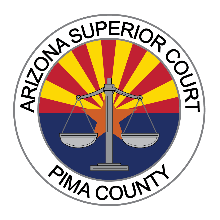STRUCTURED SETTLEMENT TRANSFER (ARCivP 70.1; ARS § 12-2901)
• An Application to Transfer Structure Settlement Payment Rights is filed with the Court with the Payee’s Declaration and Transferee’s Declaration as attachments to the Application.
• A Notice of Hearing is submitted with the Application.
• The Application will be randomly assigned to a judicial officer for handling.
• A hearing will be set by the assigned division.
• The Payee and the Transferee must be present for the hearing.
MISCELLANEOUS ITEMS:
“M" BOOK RULINGS
• "M" Book refers to motions submitted to an assigned judicial division for ruling without a hearing requested.
• These motions are held for response/objection time from the date of receipt, allowing for the opposing party to respond.
• If a response/objection is filed, the assigned division will hold on to the paperwork for any reply to the response.
• Once a reply has been received, or the time has run for filing a reply, the matter is then directed to the assigned judicial officer for ruling.
• A self represented litigant must deliver a courtesy copy of all motions/responses/replies to the assigned judicial officer. NOTE: A courtesy copy can be dropped off at the 9th Floor Reception Desk to be placed in the judicial officer’s mailbox.
• If a copy of the motion by a self-represented litigant, only, (or electronically if filed by an attorney) is not delivered to the assigned judicial officer, the motion will not be ruled upon.
NON-APPEARANCE CALENDAR
• If you should see a “non-appearance” matter on the calendar, it means just that. No appearance by the parties or counsel. This calendar is used to internally track matters regarding a particular case (i.e. paperwork due date, etc.).
• The assigned division will issue an in chambers order to the parties/attorneys regarding compliance dates and dates of any hearings if needed.
UNDER ADVISEMENT RULINGS
• When a matter is not ruled upon at the time of hearing but will be ruled on at a later date.
• If additional memoranda are required, the assigned judicial officer hearing the matter will advise the parties and give them a deadline to submit same.
• Occasionally, additional argument may be required and if so, an additional hearing will be set.
• The Supreme Court of Arizona requires that an under advisement ruling be made within 60 days unless extended for good cause.
• Once the ruling is made, all interested parties will receive a copy of same.



